Canada is known for its divergent treatment in legalizing marijuana. It is known for a fact that cannabis was banned in the country from 1923 until the legislation was amended and cannabis was made legal for medicinal purposes on July 30, 2001. CBD is now accessible for both medical and recreational purposes under the conditions outlined in the conditions and regulations provided by Canadian federal law.
Black market for weed
However, Canada’s historic steps in legalizing cannabis did not lead to the disappearance of black market marijuana. It’s even towering over the legal stuff. According to reports, the majority of marijuana sales across Canada last year came through the black market, reaching about 79 per cent of the total sales. That sounds better when compared to the 90 per cent tally in the preceding quarter. However, legal pot sales still need to go a long way before they outperform their illegal counterpart.
One of the main factors why the black market still outperforms the legal market is price. Statistics Canada released an anonymous survey regarding the costs of cannabis in Canada. The survey found out that the average price of marijuana in the government-licensed resellers is $10.91 per gram. This price is over 40 per cent higher than the black market.
Meanwhile, another major factor appears to be related to the cannabis supply. In Canada, the government already set aside lands big enough to plant the required amount of marijuana. The licensed cultivators are required to produce a total of one million kilograms of cannabis per year to meet the total demand in Canada. Despite this, there are still reports of shortages of legal cannabis in certain parts of the country.
Cannabis shortage
Tammy Jarbeau, a spokesperson for Health Canada, stated that marijuana’s overall supply is not the problem. Federal licence holders have reported that territorial and provincial public bodies through the national CTS (cannabis tracking system) indicate that the total supply of cannabis surpasses the reported sales. Jarbeau stated that the main problem is the supply chain operation.
Getting the black market out of the picture will be a big challenge, even with optimal supply and price circumstances.
The model of distribution that Canada uses across its territories and provinces fuels the fire. In some parts of Canada, the government-operated shops are the only ones that have the authorization to sell cannabis. Meanwhile, in other provinces, it’s tremendously expensive to pay for licences and regulatory fees to set up a shop.
Best solution
The application process for approving licences is now updated by Health Canada, along with amendments that permit planters to expand production. Currently, there are over 170 sites across entire Canada authorized to sell and produce cannabis.
However, this varies across Canada. In the most populated province of Ontario, the government just issued 25 licences and faced supply issues.
According to experts, there’s more that can be done to solve the problem. One of the solutions is to bring illegal market cultivators into the fold.
Alcohol and drug regulation expert and Brock University associate professor Dan Malleck stated that the government keeps forgetting that, when it comes to the retail side of the cannabis trade, prohibition does not work. Putting strict prohibitions on illegal trade is not an effective solution.
The legalization of cannabis has solved some big issues around illegal drug use, but the government must still do intensive brainstorming in order to come up with the optimal solution to the black market problem.
Dwight Blake is founder and editor in chief at the online cannabis resource American Marijuana. Before he launched the organization in 2014, he was mental health counsellor at Long Island Psychotherapy & Counseling in Westbury, N.Y., for more than 15 years.
Interested in writing for us? To learn more about how you can add your voice to The Lawyer’s Daily, contact Analysis Editor Peter Carter at peter.carter@lexisnexis.ca or call 647-776-6740.
This article is presented by LexisNexis on behalf of the author. The opinions may not represent the opinions of LexisNexis. This document is for educational purposes only.
« Back to Small Law e-Brief Page


